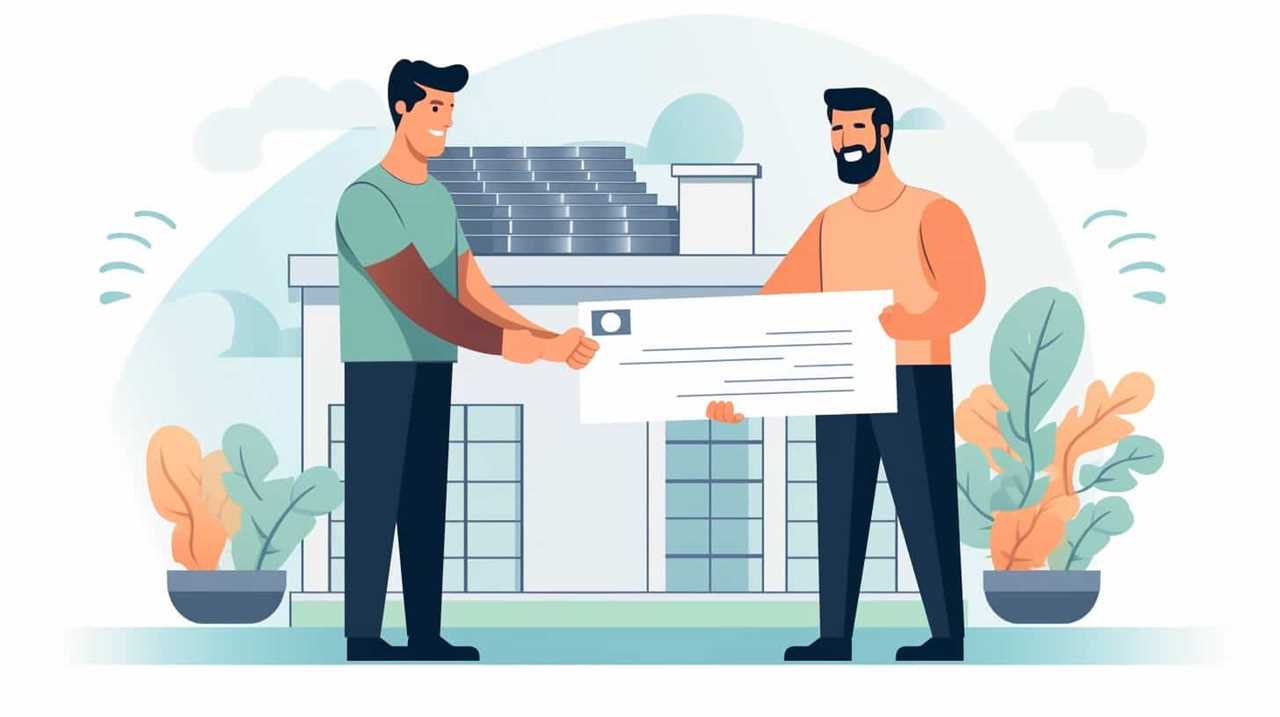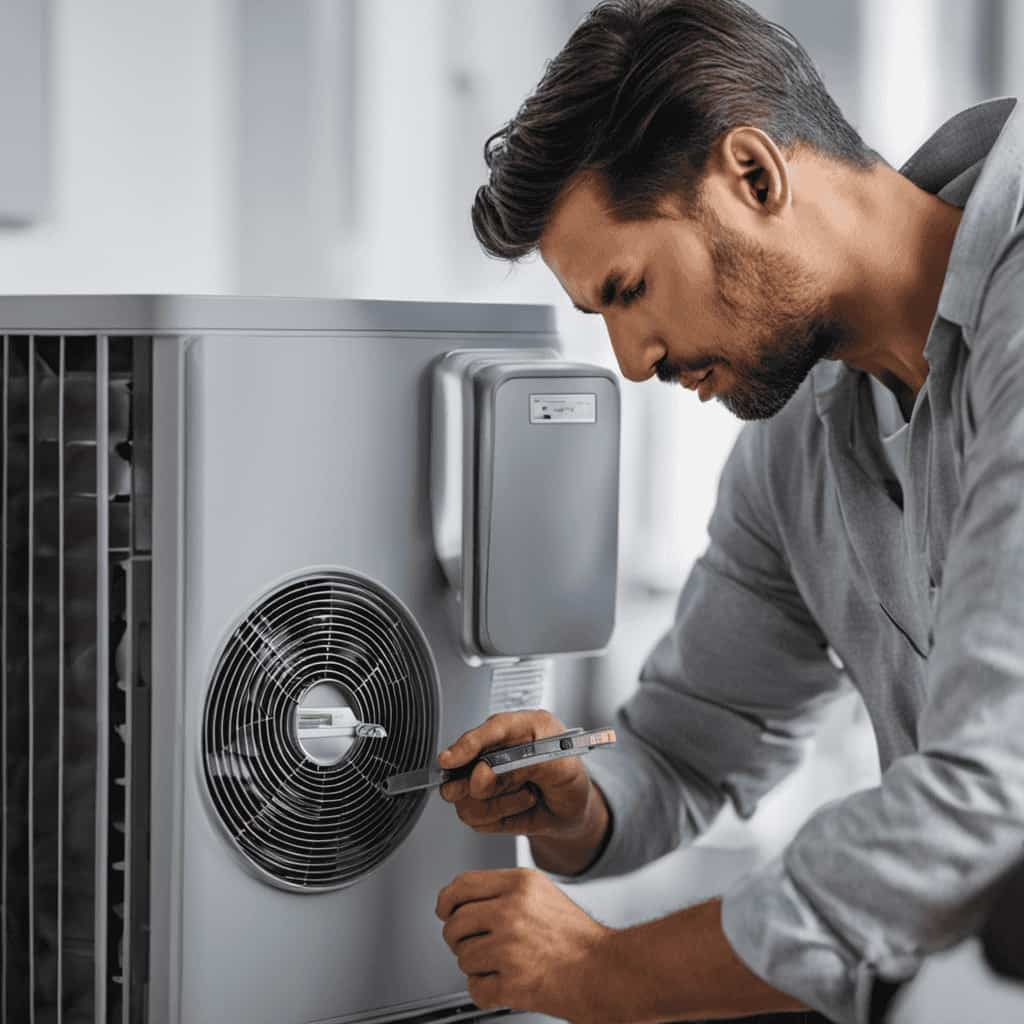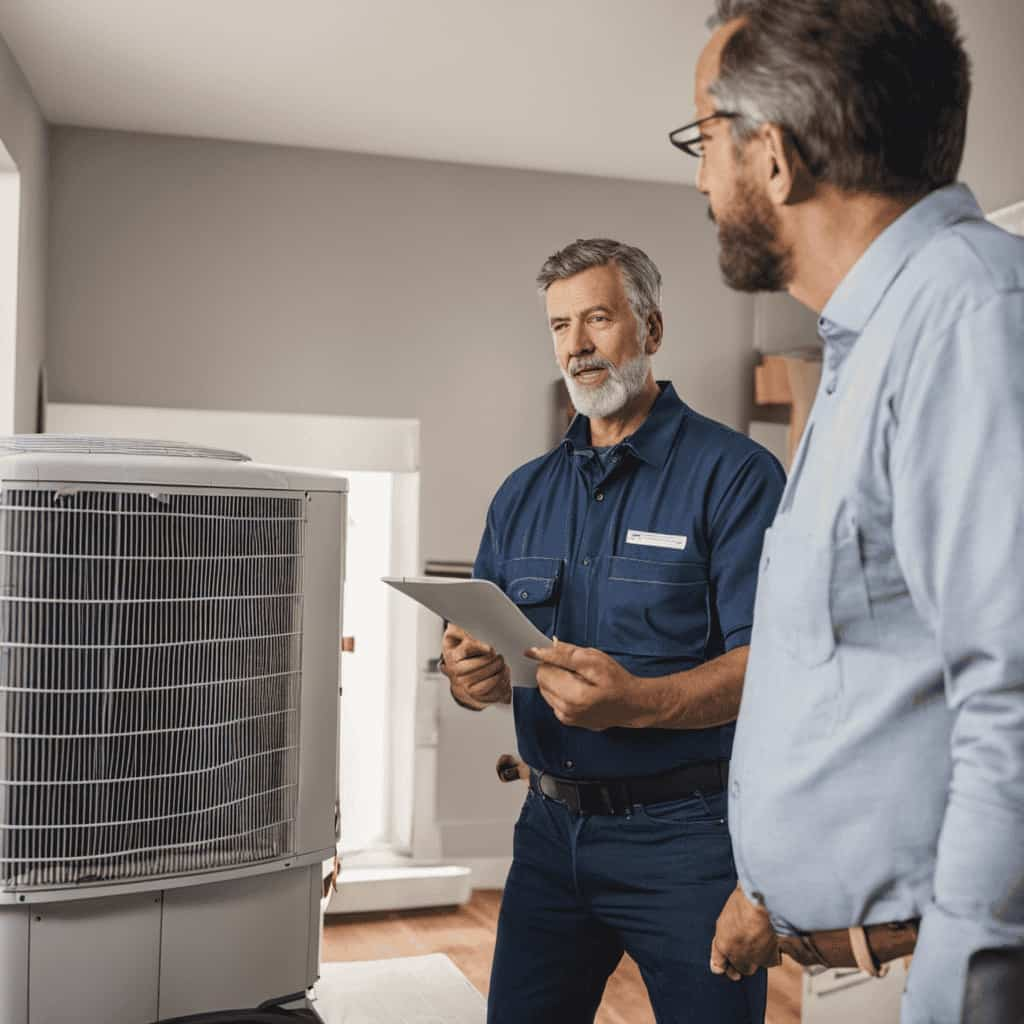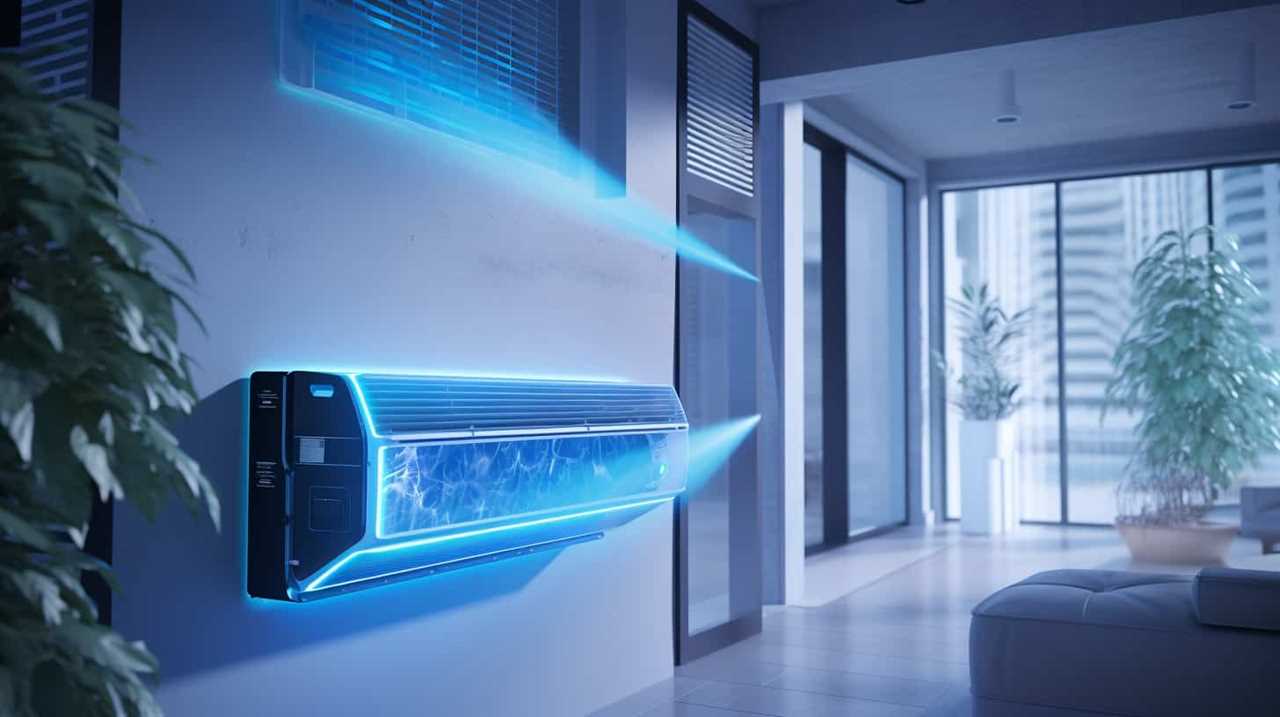We have all felt the frustration of expensive energy bills and ineffective heating systems. But do not worry! In our search for freedom from exorbitant utility expenses, we have found the answer: green heat pump technology.
This innovative system harnesses the power of nature to provide efficient heating and cooling. In this article, we’ll explore common energy issues with heat pump systems and present practical fixes to improve their performance.
Get ready to revolutionize your energy consumption and embrace a greener, more cost-effective future!
Key Takeaways
- Adherence to heat pump efficiency standards ensures optimal efficiency levels.
- Integrating renewable energy sources like solar panels or wind turbines enhances efficiency.
- Proper installation and maintenance are crucial for maximizing energy efficiency.
- Green heat pump technology offers a cost-effective and sustainable heating and cooling solution.
Energy Efficiency of Green Heat Pump Technology
We need to assess the energy efficiency of green heat pump technology in order to determine its effectiveness in reducing carbon emissions. One important aspect to consider is the adherence to heat pump efficiency standards. By setting and enforcing these standards, we can ensure that green heat pumps operate at optimal efficiency levels, maximizing their potential in reducing energy consumption and carbon emissions.

Additionally, it’s crucial to integrate renewable energy sources into the operation of green heat pumps. This can be achieved by connecting the heat pump systems to solar panels or wind turbines, allowing for the utilization of clean and sustainable energy sources.
Common Energy Issues With Heat Pump Systems
Experiencing frequent temperature fluctuations and inefficient heating or cooling are common energy issues encountered with heat pump systems. To address these problems, proper heat pump maintenance is essential.
Here are some energy-saving tips to optimize the performance of your heat pump:
- Regularly clean or replace air filters to ensure proper airflow and efficiency.
- Keep the outdoor unit clear of debris, such as leaves or grass, to prevent airflow restrictions.
- Check and seal any gaps or cracks in your home’s insulation to minimize heat loss or gain.
- Consider installing a programmable thermostat to regulate temperature settings and optimize energy usage.
Improving Energy Performance of Heat Pump Systems
To enhance the energy performance of our heat pump systems, we can implement strategies that focus on optimizing efficiency and reducing energy consumption.

One key aspect is ensuring proper heat pump installation. This involves selecting the right size and type of heat pump for the space, as well as ensuring proper insulation and sealing to minimize heat loss.
Regular heat pump maintenance is also essential to maintain optimal performance. This includes cleaning or replacing filters regularly, checking and adjusting refrigerant levels, and ensuring all components are functioning properly.
Additionally, scheduling professional maintenance at least once a year can help identify and address any potential issues before they become major problems.
Green Solutions for Heat Pump Energy Efficiency
How can we maximize the energy efficiency of our heat pump systems using green solutions?

Here are some sustainable heating solutions and renewable energy alternatives to consider:
-
Geothermal heat pumps: These systems use the natural heat from the Earth to provide heating and cooling, offering high energy efficiency and low environmental impact.
-
Solar thermal systems: By harnessing the power of the sun, these systems use solar collectors to heat water or air, reducing the reliance on traditional energy sources.
-
Air source heat pumps: These systems extract heat from the outside air and transfer it indoors, providing efficient heating and cooling throughout the year.

-
Heat pump water heaters: These units use heat pump technology to heat water, consuming less energy compared to conventional electric water heaters.
Troubleshooting Energy Problems With Heat Pump Technology
Sometimes, when our heat pump technology isn’t working efficiently, we can troubleshoot the energy problems and find effective fixes.
Heat pump maintenance is essential for ensuring optimal performance and energy savings. Regularly cleaning or replacing air filters, checking and cleaning the outdoor unit, and inspecting the ductwork for leaks can help improve energy efficiency.
Additionally, adjusting the thermostat settings and using programmable thermostats can further reduce energy consumption. It’s also important to ensure that the heat pump is properly sized for the space it’s heating or cooling. Oversized or undersized units can lead to energy inefficiency.

Frequently Asked Questions
How Long Does It Take for a Heat Pump System to Pay for Itself in Energy Savings?
It usually takes several years for a heat pump system to pay for itself in energy savings. However, the payback period can vary depending on factors such as the initial cost, energy prices, and usage. Over time, the cost savings can be significant.
Are There Any Government Incentives or Tax Credits Available for Installing a Green Heat Pump System?
Yes, there are government incentives and tax credits available for installing a green heat pump system. These incentives and credits can help offset the initial investment and make it more affordable for homeowners.
Can a Heat Pump System Be Used in Colder Climates Where Temperatures Drop Below Freezing?
Yes, a heat pump system can be used in colder climates where temperatures drop below freezing. While heat pump system efficiency may decrease in extreme cold temperatures, there are solutions available to improve performance.
Are There Any Specific Maintenance Requirements for Green Heat Pump Systems to Ensure Optimal Energy Efficiency?
There are specific maintenance requirements for green heat pump systems to ensure optimal energy efficiency. Regular cleaning and inspections, as well as filter replacements, can help keep the system running efficiently and reduce energy consumption.

Can a Green Heat Pump System Be Integrated With Renewable Energy Sources Like Solar Panels or Wind Turbines?
Certainly! Integrating a green heat pump system with renewable energy sources like solar panels or wind turbines can pose integration challenges. However, with proper planning and economic viability analysis, it can be a cost-effective and sustainable solution.
Conclusion
In conclusion, it’s clear that green heat pump technology plays a crucial role in addressing energy issues.
While some challenges arise, such as energy efficiency concerns, there are effective solutions available. By improving energy performance and utilizing green solutions, we can overcome these obstacles and maximize the efficiency of heat pump systems.
Additionally, troubleshooting energy problems with heat pump technology allows us to rectify any issues that may arise.

Overall, by embracing these solutions, we can enhance the energy efficiency of our heating systems.









